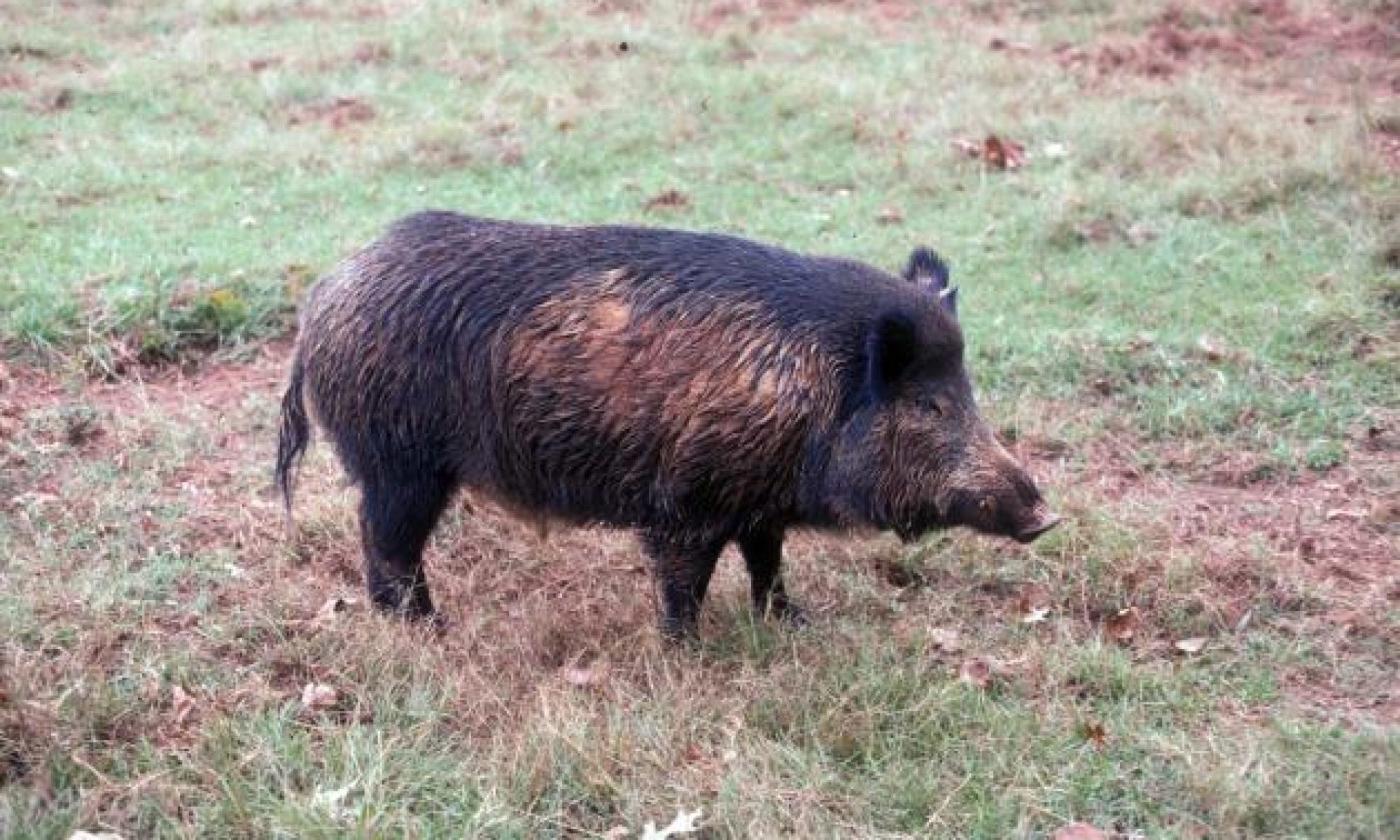Swine brucellosis is a highly contagious infectious disease caused by the bacterium Brucella suis, of which there are five biotypes or strains. Brucellosis represents a significant disease of domestic swine, which had been all but eliminated from domestic herds in the United States. However, swine brucellosis infection commonly occurs in feral hog (also called wild hogs; Sus scrofa) populations in this country. Several species of vertebrates can also contract this disease. Biotypes 1 and 3 can cause infections …
Pseudorabies Virus in Feral Hogs
Pseudorabies virus (PRV), also known as Aujeszky’s disease, is an infectious viral disease that is caused by the Suid herpesvirus 1 (SuHV-1). The name “pseudorabies” means “rabies like” or “false rabies;” however, PRV is a herpes virus and is not related to the rabies virus. Although humans cannot be infected, PRV is found in several species of mammals (for example, cattle, sheep, goats, deer, bears, cats, dogs, mink, skunks, raccoons, rabbits and rats) as well as swine. It represents a …
Quick Facts on Feral Hogs
Feral hog numbers are on the rise in the United States. Likewise the problems they cause are also growing. With attention on this invasive species, many myths are circulating about feral hog history, distribution, biology, and damage. The following bullets will help get the facts straight.
History and Distribution
- Swine were domesticated thousands of years ago from wild stock in Europe and Asia.
- Swine were first introduced to North America by Spanish explorers.
- Confined and/or free-ranging domestic swine escaped from
Protecting Yourself from Feral Hog Diseases

Figure 1. Hunter wearing gloves while processing a feral hog. Photo courtesy Dr. Jim Cathey, Texas AgriLife Extension
Potential diseases carried by feral hogs and their health risks are popular concerns among hunters . As a first line of defense, hunters should assess the body condition of each feral hog harvested. A feral hog that looks to be in poor condition or skinny should be discarded as this could be a sign of disease. These feral hogs should not be …
Feral Hog Attacks on Humans
Feral hog (also called wild hogs and wild pigs; Sus scrofa) attacks on people are rare and uncommon. In the United States, four people have died from feral hog attacks since the late 1800s—three victims were attacked by a wounded boar while hunting.
Given the opportunity, most feral hogs would flee rather than confront a nearby human. The majority of non-fatal attacks to people happen when hogs are cornered, threatened, or wounded in non-hunting circumstances. Most human victims are …
Vehicle Collisions with Feral Hogs
Feral Hogs versus Vehicles
Vehicle collisions with feral hogs (also called wild hogs and wild pigs; Sus scrofa) are known to occur in the United States. As the population size of these animals increases, the frequency of feral hog-vehicle collisions increases concurrently. In some locations of high incidence for these accidents, feral hog crossing signs have been erected to warn motorists (Fig. 1). In general, feral hogs are large animals (for example, 200+ lb) with a relatively low center …
Nuisance Problems with Feral Hogs
Although feral hogs (also called wild hogs and wild pigs; Sus scrofa) are a big game resource in the United States, these non-native animals are almost always classified as an undesirable invasive species. Feral hogs cause a large variety of damage to natural and man-made environments. Economic losses from feral hogs to agricultural resources, including cost of feral hog control, is an estimated $1.5 billion annually in the United States (Pimentel 2007). Feral hogs are one …
What diseases do feral hogs carry or transmit?
Feral hogs (wild pigs) are susceptible to a wide range of viral, bacterial, and fungal diseases (e.g., African swine fever, anthrax, tuberculosis, brucellosis, hog cholera, E. coli, foot-and-mouth disease, influenza viruses, leptospirosis, pseudorabies virus, and vesicular stomatitis). Specifically, feral hogs have the potential to contract and transmit all of the diseases of domestic swine. Some of these diseases are specific to domestic swine, while others can also infect other wild and domestic mammals as well as humans. As such, …
